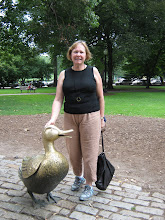Goal 10 Reduce inequalities within and among countries.
Across the world there is still a lot of inequality to be found. What does inequality look like? For example, even in the richest countries, there are children who cannot afford lunch at school and go hungry, women who don’t get paid as much as their male coworkers for the same job, or people who are being treated differently because of their religion, age or where they are from.
My students certainly understand equality from maths and from personal forays with what they consider to be unfair or unequal, but whether or not they can clearly verbalise or visualise inequality is a different matter. They come from very comfortable middle class homes in a prosperous city. Demonstrating inequality will need to be personal or connected in someway to their life to start with. They will have all read and understood equal shares from reading a book such as The Doorbell Rang by Pat Hutchins, so I think I could read Four Feet Two Sandals to show that sharing and life for some children does not always work so equably.
When relief workers bring used clothing to the refugee camp, everyone scrambles to grab whatever they can. Ten-year-old Lina is thrilled when she finds a sandal that fits her foot perfectly, until she sees that another girl has the matching shoe. But soon Lina and Feroza meet and decide that it is better to share the sandals than for each to wear only one.
Then maybe follow it up with something that talks about taking a stand, like Peter Reynold's Say Something!
The world needs your voice. If you have a brilliant idea... say something! If you see an injustice... say something! In this empowering picture book, author Peter H. Reynolds explores the many ways that a single voice can make a difference. Each of us, each and every day, have the chance to say something: with our actions, our words, and our voices. Perfect for kid activists everywhere, this timely story reminds readers of the undeniable importance and power of their voice especially when it comes to inequality.
This may also be the place to look at how disabled people, Indigenous people, people of other faiths are treated and whether it is equably.
These two books are suitable for very young readers and they will provide for lots of discussion post reading.
Here's the blurb:
Two Mates is the true story of the special mateship between two young boys who have grown up together in the coastal town of Broome in Australia's north-west. Jack is Indigenous and Raf is a non- Indigenous boy who has spina bifida. Jack and Raf take the reader on a journey of their daily life growing up in Broome. Together they search for hermit crabs, go hunting for barni, fish for salmon, explore the markets, eat satays and dress up as superheros. The fact that Raf is in a wheelchair is only revealed at the end of the story.
Here's the blurb:
Feeling different, especially as a kid, can be tough. But in the same way that different types of plants and flowers make a garden more beautiful and enjoyable, different types of people make our world more vibrant and wonderful.
Just Ask, celebrates the different abilities kids (and people of all ages) have. Using her own experience as a child who was diagnosed with diabetes, Justice Sotomayor writes about children with all sorts of challenges--and looks at the special powers those kids have as well. As the kids work together to build a community garden, asking questions of each other along the way, this book encourages readers to do the same- When we come across someone who is different from us but we're not sure why, all we have to do is Just Ask.
Booklet tasks:
• We know what equal means from maths, so we can work out what equality means, but what does inequality mean?
• We read...
• This story made me want to change how...







No comments:
Post a Comment